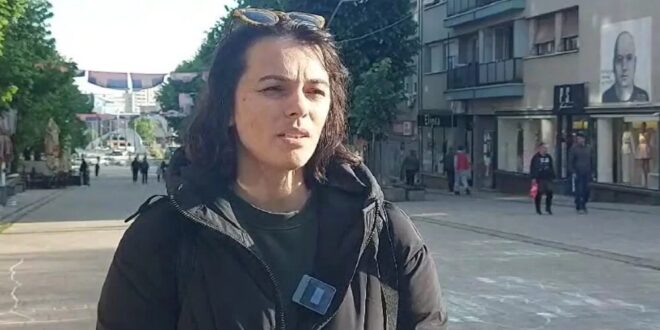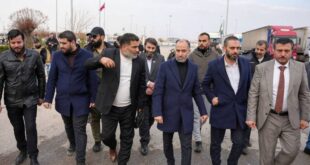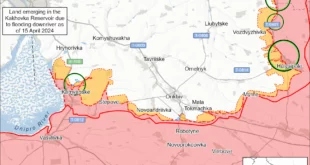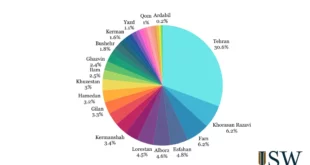The Serbian community in Kosovo suffered the biggest blow from the armed conflict in Banjska, from which it is still recovering. While he is recovering, the citizens are leaving, Ana Marija Ivković, journalist of Radio Kontakt plus from Kosovska Mitrovica, tells Danas.
On Sunday, citizens in the north of Kosovo had the opportunity to vote for or against the removal of the mayors elected in the local elections that were boycotted by the Serbs, but after the Serbian List, followed by other Serbian parties from the north, called on the Serbs to boycott this process failed. . 0.54 percent of citizens turned out, so the mayors of North Mitrovica, Zubin Potok, Leposavic and Zvečan will remain in their positions.
We spoke with our interlocutor the day after the voting, which took place with surveillance cameras at the polling stations, which somewhere recorded the act of voting itself, at least where there were voters.
Pristina asks the international community to lift sanctions on Kosovo after the voting process for the removal of the mayor is over. Ivković believes that the main argument for not lifting the sanctions is Pristina’s attitude towards the Serbian community.
“We’re talking about raids on municipal facilities last year, illegal expropriation and the fact that the Prime Minister of Kosovo only trusts a certain group of Serbs, but not others.”
Formally, the condition was met because the referendum failed, but several preconditions had to be fulfilled for the process to actually take place, such as cleaning the voter list.
Speaking about the boycott of the Serbs, she says that it was a mistake mostly from the point of view that in the next year there will be no legal possibility to reach this process.
“The problem arose at the moment when the Serbian List relied on the fact that the mayors would resign. It is not clear to me where they came to such a conclusion. I believe that they conspired that the pressure of the international community will lead to that”.
Unfortunately, this is a wrong procedure by the Serbian List in calculating how the mayors in the north will continue to act.
“From the perspective that we have unrealistic voter lists, the deep distrust in the Kosovo government by the Serbian community, the boycott was really the only expected step.”
Cameras were used for the first time at polling stations, and at certain polling stations they recorded the act of voting itself. Ivkovic says that he does not know what to expect from the use of cameras in elections, because this was a pilot project.
“Essentially, I think that the consequences and whether it will force the citizens to vote or not were not thought about.” I don’t think Self-Determination cares about controlling who voted how, because they, like all other Kosovo parties, have mechanisms to get votes, as well as their army of bots. Similar to what we see in Serbia”, says the Kontakt plus journalist .
She believes that the Serbian List made a mistake by not asking for it, and the reason, as she already mentioned, is that they expected the mayors to resign.
“I expect that there will be no change of mayors for the next year and that they will lead party politics.” We have seen that the mayor of North Mitrovica, Erden Atić, primarily led the party policy of Self-Determination. It is not about taking care of the needs of the citizens, but about fulfilling the criteria set by their party. I expect that other mayors will do the same, maybe not so much those who come from Self-Determination. I think this opens up the space for new crises to occur on the ground,” she says.
Asked what is left of the Serbian community, she answers – not much.
“Unfortunately not much.” The Serbian community experienced the biggest blow in Banjsko. I think he is still recovering from that, and while he is recovering, citizens are leaving,” he says.
She is not sure what the next steps could be, except that there is finally a political party or a gathering of citizens of Serbian nationality who would throw themselves into improving the lives of Serbs, and not the party politics of the SNS.
“For the last two years, and even longer, party and elemental politics have been conducted towards Kosovo. Decisions were made on the basis of what the international community demands from Belgrade, and not on the basis of what would keep the citizens. It’s hard in the north, it’s even harder in the south. Citizens are arrested on charges of war crimes, which is very strange, we are talking about returnees. In the north, citizens fear that they will be arrested for any association with Banjska and the barricades. “Nothing is being done to stabilize the community, but it is being done exclusively to ensure that SNS implements international policy and implements the criteria set by the international community,” he points out.
She says that both governments are doing it, and that the international community “turns a blind eye” on it.
 Eurasia Press & News
Eurasia Press & News




